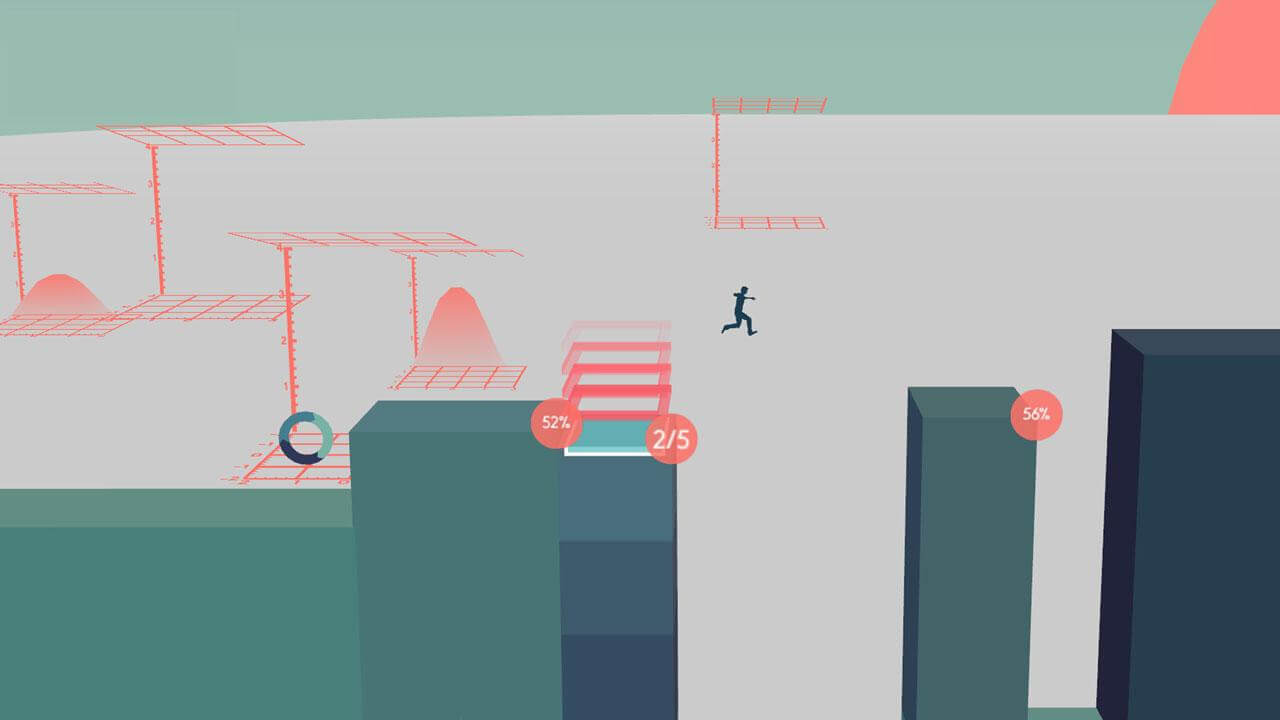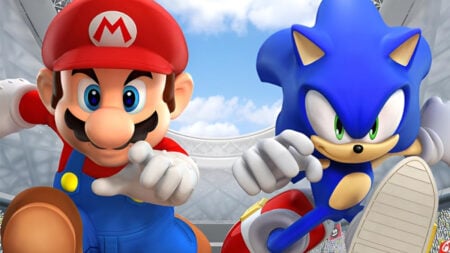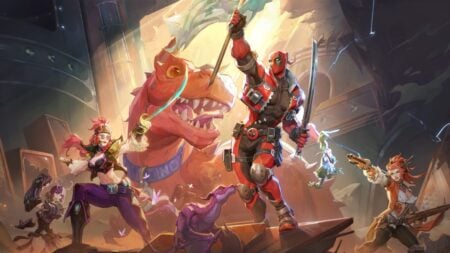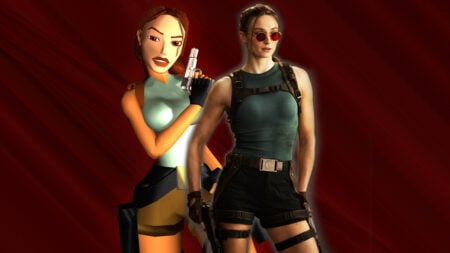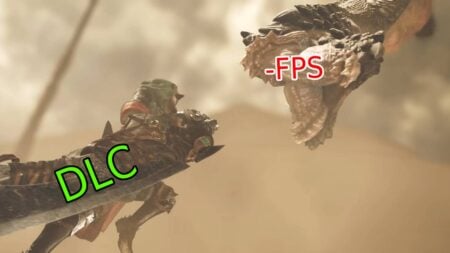Title: Metrico
Version Tested: PlayStation 4
Available On: PlayStation 4, PC
Developer: Digital Dreams
Publisher: Digital Dreams
Genre: Puzzle, Platformer
Official Site: https://metrico-game.com/
Release Date: August 23, 2016
Where to Buy: Steam, PlayStation Marketplace
Metrico could be described as the epitome of “form over function.” It’s immediately clear the hyper-stylized appearance of the world and level geometry were the top priority, and while there’s no arguing that Metrico is a beautiful game, what it fails to be is an interesting puzzler outside of superficial concerns. While the game perfectly expresses an infographic-inspired world to the player, it fails to use this inspiration to truly create an identity for itself.

The narrative follows a nameless protagonist across a data-centric minimalist landscape. The player will solve puzzles, do some light platforming, and strive to reach the end of six different areas. The design on display is quite sleek, showcasing a vibrant yet clinical landscape complete with bar graphs, vectors, and pie charts to occupy the Metrico world. Atmospherically, Metrico aims for the stars, and on that front its successful, with music and visuals working in tandem to create a world that feels both lively and lonely simultaneously.
The puzzle mechanics of Metrico are based on measurements. A bar may count how many times you’ve jumped during a particular puzzle, so you may end up needing to jump a few times to rack up a jump tally that extends the bar to where you need it to go.
Some obstacles move based on lateral movement, some on jumping, some on projectile shots, some on how many enemies are left, and so on and so forth. While it’s clear that the tally based puzzle solving lends itself nicely to the infographic-inspired backdrop, in terms of gameplay what this often boils down to is jumping and running around aimlessly, firing your projectile to see what moves, and then resetting the puzzle to try again.
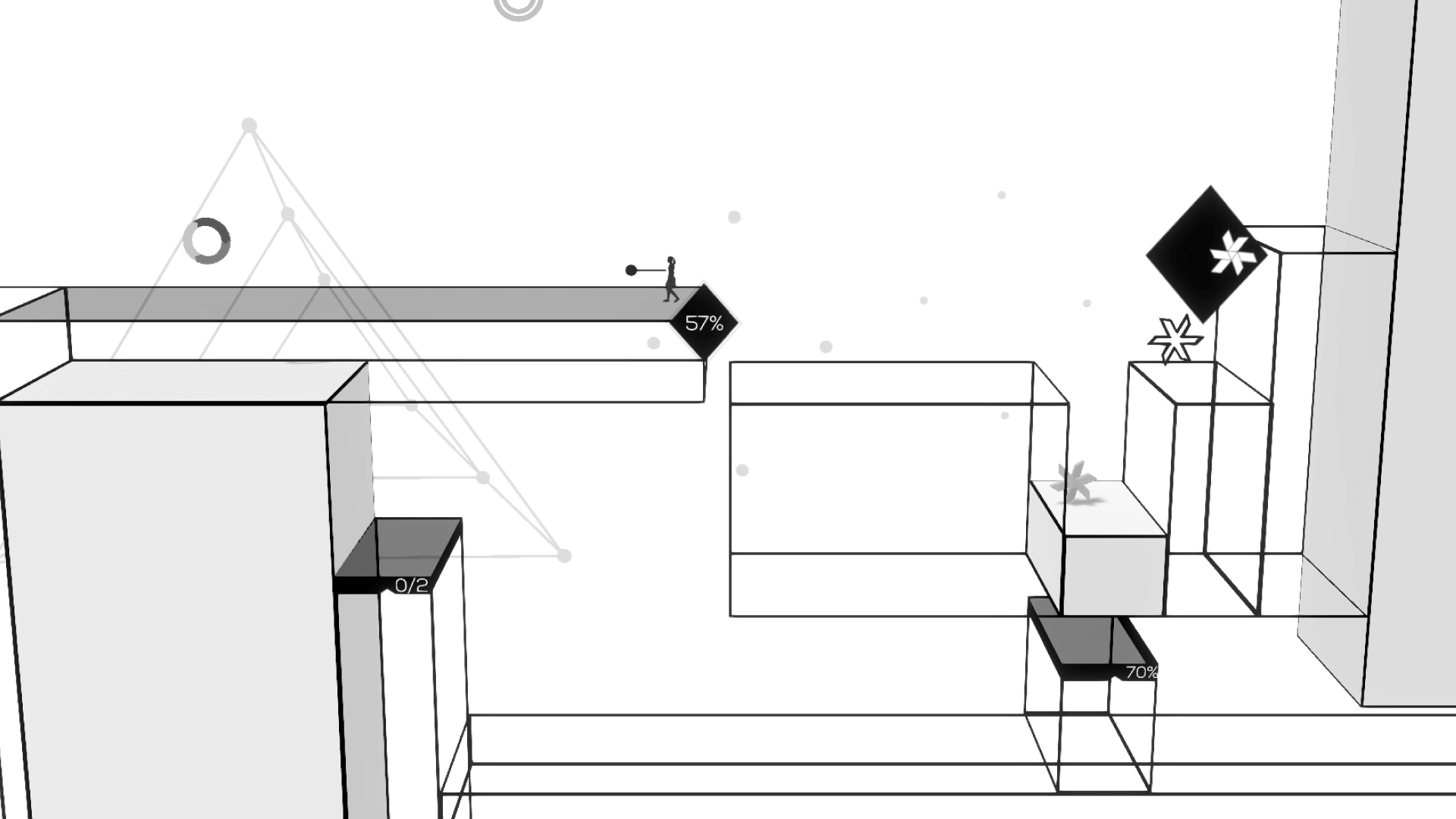
Constantly having to rediscover a given puzzles systems becomes tedious quickly, and typically ends up bringing the pacing of Metrico to a grinding halt. No matter how good a player is at problem solving, each Metrico puzzle requires the same level of trial and error, which ends up detracting from the experience. Rather than critically thinking about each puzzle, more of your time in Metrico is going to be spent figuring out what every action does for each new set of circumstances, which never amounts to anything more than a hassle.
With puzzle elements constantly changing, Metrico is left with very little chance to build a solid foundation of consistent puzzling mechanics. Without this foundation, Metrico becomes a series of puzzles that end up feeling too disjointed to be a cohesive experience. Scarcely, did I feel that the knowledge I had built so far was helping me solve the next puzzle in any way. It was always more about asking myself what jumping was going to do this time, what platform was going to lower if I fired a projectile, and most of all, how many more puzzles would I have to solve until it was over.
Metrico lacks any kind of real consistency, as a result, it ends up feeling like a game with a bit of an identity crisis. At first it seems to eschew classic platformer tropes with a minimalist style, simplified mechanics, and an emphasis on tranquility rather than action, but then seems to directly undermine its own novelty by giving the player a gun, and enemies to shoot. When novelty is threatened in a title like Metrico, then frankly it becomes an experience that ceases being worth the time.
The abilities given to the player are at best shallow additions, and at worst uninspired enough to hamper the puzzles they’re being used for. At a point the player is given the ability to use checkpoints, and not long after, some platform locations are actually based on how many times you reset a puzzle by using a checkpoint. This means that later a new ability must be given to reset your reset count, which I can say with absolute certainty is the most boring ability a game has ever given me. To no surprise, checkpoint and reset abilities don’t tweak the puzzle formula in interesting ways, and even when Metrico rewards the player a projectile weapon for use in some of the better puzzles, the new ability is still hampered by awkward controls, requiring precise shots to be made with a finicky aiming system.
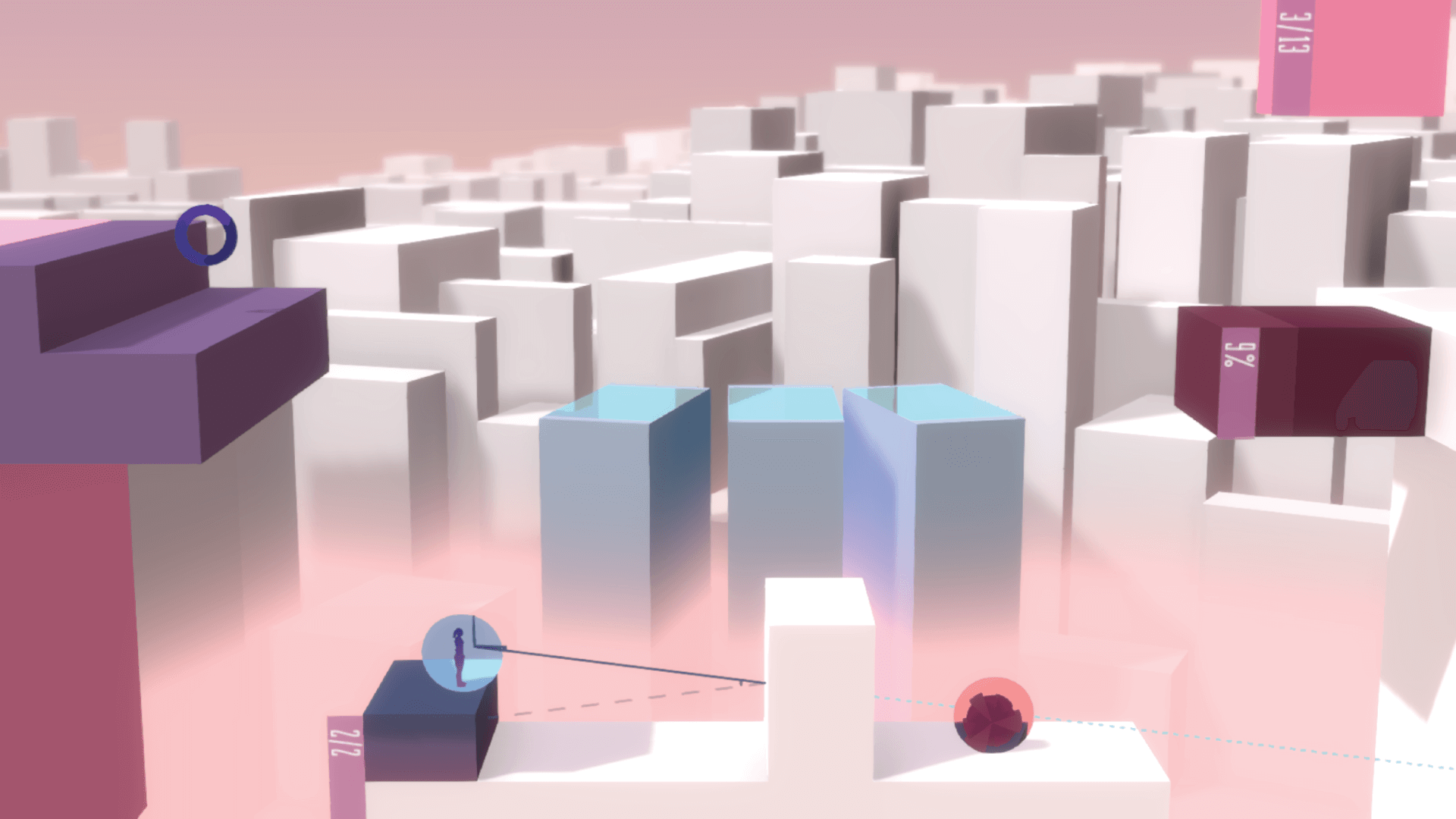
Finishing each world presents the player with a meaningless choice of which part of the character model will be replaced with a robotic prosthetic. It seems to pain the protagonist a few times throughout the playthrough, but with so little known about the character, or the situation he finds himself in, it’s hard to manage any sympathy. I get the feeling the designers wanted players questioning where they were or what they were doing, but if I had to guess players are more likely to be asking “Why should I care?” The ending is kept intentionally vague, and while I will avoid spoilers, suffice it to say that there’s not much to spoil in the first place.
“Form over Function” is the idea that dominated Metrico, which worked to its benefit at times, but more so to its detriment. The infographic styling was easy to take in, with the strong sound design and skillfully constructed set pieces working together to create an interesting world, but once Metrico had to come to terms with its gameplay, the harmony between form and function was nowhere to be found.
- Gameplay: Painful. Trial and error rob each puzzle of any satisfaction.
- Graphics: Style was completely nailed, with graphics that are sleek and visually engaging.
- Sound: Soundtrack is peaceful and understated, a perfect fit for a tranquil platformer.
- Presentation: Nicely-handled. From start to finish Metrico’s stylistic choices are consistent.
[review]

